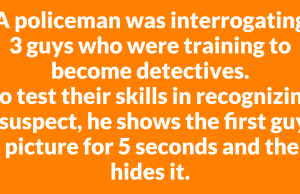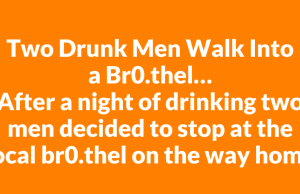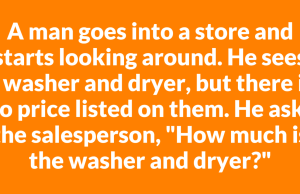
When he heard his parents were flying in for a surprise visit, the wealthy Nathan Berg found himself in a bind. Desperate, he approached a homeless woman with a strange request — to pretend to be his fiancée for just one evening.
But when she walked into the upscale restaurant, her mother’s eyes widened in shock — she couldn’t believe what she was seeing.
“Have you lost your mind?” she gasped, stepping back as if caught in a lie. “Me? Pretend to be your fiancée? Yesterday, I was digging through dumpsters for food!”
Nathan calmly shut the door behind her, leaning against the wall with weary patience.
“You don’t have a reason to say no. I’ll pay more than you’ve ever dreamed of. One night — that’s all I’m asking. Just pretend. For them. For my parents. It’s just a show. A performance. Or have you forgotten how to act?”
She didn’t speak. Her gloved fingers trembled, and her heart pounded like it was trying to escape her chest.
Could this be the beginning of something new? Or at least the end of the suffering?
That moment sparked a story no one saw coming.
Nathan Berg had everything: wealth beyond comprehension, influence, elegance. His face was a regular on magazine covers, his name whispered in business circles. Polished, powerful, and private. And his parents — still living in Europe — had grown tired of his excuses:
“When are we finally going to meet the woman you’re hiding from us?”
This time, they didn’t wait. They booked their own tickets. They’d be there — tomorrow.
Nathan wasn’t scared. Just… unsettled. Not because he feared their disapproval, but because he genuinely couldn’t think of a single woman who fit the part. Not one he didn’t find fake or rehearsed. He wanted something… real. Or at least, completely unexpected.
Driving through the evening traffic, he spotted her. At the entrance of a metro station, holding a guitar beside a cardboard sign:
“I don’t want charity — I want a chance.”
For once, he stopped.
“What’s your name?”
She looked up, eyes cautious, voice rough but proud:
“Why should you care?”

He gave a faint smile.
“Because I need a woman who’s survived. No makeup, no filter. Someone like you.”
Her name was Marta. Twenty-seven. Her past was a story of orphanages, escapes, shelters, relapses, nights under open skies — and a guitar. The only thing she owned.
The next evening, she stood in front of a mirror at the luxurious Emerald Hotel, her hands smoothing the deep-sea velvet dress they had picked for her. Her hair was freshly styled, makeup precise, face nearly unrecognizable. And yet, for the first time in years, she saw herself.
Nathan glanced at his watch, fixing his cufflinks.
“They’re already at the restaurant. We’re late for our fairytale.”
“Do you think this will actually work?” she asked.
He looked at her for a long moment.
“I think you’re the only person who could ever win my mother over.”
Everything was going smoothly at first.
His father was quiet but observant. His mother — elegant, sharp, unreadable. She studied Marta closely.
“How did you two meet?” she asked.
Marta glanced at Nathan. He gave a subtle nod.
“At a bookstore,” she replied. “I dropped a copy of Schopenhauer. He picked it up. We laughed.”
“Schopenhauer?” his mother echoed, surprised. “You read philosophy?”
“As a child. Our orphanage librarian let us borrow anything — even the hard stuff — if we promised to return it.”
A pause followed. Nathan’s mother set her glass down, never taking her eyes off Marta.
“You grew up in an orphanage?” she asked. Her tone had changed — softer, or maybe… personal.
And then, something unexpected happened.
Marta sat a little straighter. Her voice didn’t shake.
“I lied. I’m not Nathan’s fiancée. We didn’t meet in a bookstore — we met on the street. I’m homeless. I was just tired of being invisible. Tonight was the first time in years I felt like a person.”
No anger. No scandal. Instead, Nathan’s mother stood, crossed the space between them, and hugged her.
“My dear… I know what it means to start from nothing. Someone once gave me a chance too. I’m proud you took yours.”
Nathan said nothing — he didn’t need to. In that moment, he realized: this wasn’t a performance anymore. The mask had fallen. Real life had just begun.
Marta had told the truth — and instead of rejection, she was met with warmth.
No one at that table knew it yet, but that night was the first step toward something entirely unexpected.
Nathan’s mother, surprisingly, saw strength beneath the surface — not lies.
His father, however, remained stone-cold.
“This is insane, Nathan,” he said after dinner. “You brought us into a fantasy spun from the streets?”
Nathan replied simply, “It’s my life. Not yours to approve.”
Later, Marta stepped outside. She removed the expensive shoes, leaned against the wall, and wept.
Not out of shame — but out of pure, unfiltered relief.
She had spoken her truth.
And for the first time in a long time… no one turned away.
Nathan approached quietly. He held her coat.
“You won’t go back to the street. You’ll live with me. As long as needed.” He paused. “You deserve more.”
“I’m not asking for pity.”
“I’m not offering that. I’m giving you an opportunity.”
…
So began their strange, sharp, but honest life together. He worked late into the night, demanding of himself and others. She studied. Borrowed books, listened to lectures, cleaned the apartment, cooked. Sometimes she picked up the guitar again — not for money, but because something alive was waking inside.
She was changing.
“You’ve become different,” he said once.
“I’m just not afraid for the first time that they’ll throw me out.”
…
A month later his father left. Didn’t say a word. Just left a note: “If you choose your heart — don’t count on my fortune anymore.”
Nathan didn’t even open the envelope. Just threw it into the fireplace and quietly said:
“Money comes and goes. But if you lose yourself — you’re worth nothing.”
…
Three months later Marta saw two lines on a test.
“That’s impossible,” she whispered, sitting on the bathroom floor. “It’s too early… We’re not even a couple…”
When she told him, Nathan was silent for a long time. Then he hugged her.
“I don’t know what this feeling is called. But I know one thing — it’s right.”
…
There were court battles over the land his father wanted to take. There were rumors on the internet about “a billionaire and a homeless woman staging a show of happiness.” There were difficult births, fear of losing the baby, pain, anxiety.
And then there was a new life.
A life in which Marta became the author of her own book. A woman who stepped onto the stage not as a beggar by the roadside, but as a person who passed through poverty, indifference, and betrayal — and survived.
And every time she faced the audience, she said:
“I was a ‘fiancée for an hour.’ Now I’m a wife for life. Because one person saw me as a human being.”
…
The final scene — the very same restaurant. Marta holds the hand of a ten-year-old girl with lush curls.
“See, baby? Right here your dad smiled for the first time for real. Here we became a family, not a play for spectators.”
Nathan stands nearby. Smiling. Holding her hand. No hint of regret in his eyes.
He didn’t marry a princess. He chose a queen. Who once sat on the street with a cardboard sign asking not for help, but for a chance.



















